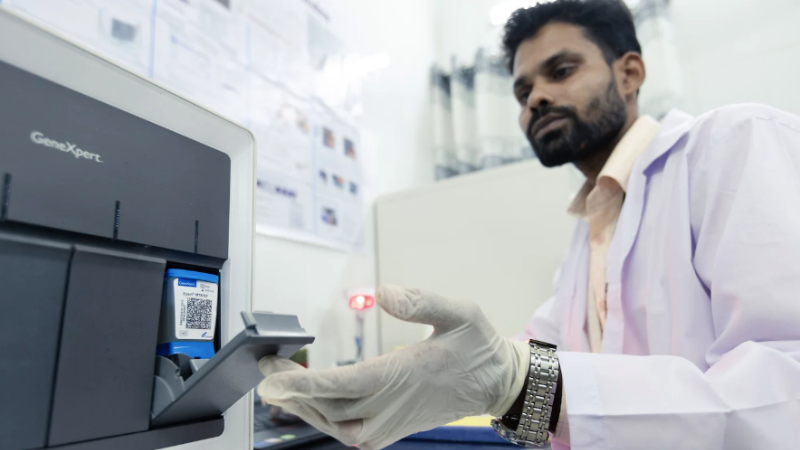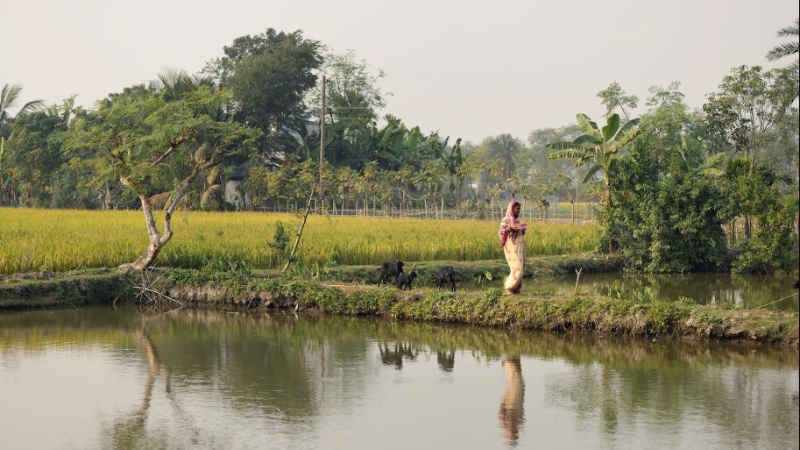
support the Global Fund‘s life-saving work
The Global Fund to Fight AIDS, Tuberculosis and Malaria is the world’s largest multilateral health funder. Since 2002, it has invested over US $65 billion in programmes to fight thse diseases, and strengthened health systems in over 155 low- and middle-income countries. This investment has cut death rates by 61% and saved 65 million lives. Despite the reductions to the UK’s Official Development Assistance (ODA) budget announced earlier this year, it is vital that the UK continues to strongly support the Global Fund when it seeks additional funding later this year.
what
the Global Fund needs $18 billion from donors to continue its vital work
who
politicians must support the Global Fund at its replenishment conference later this year
how
ask your MP to write to the Government to maintain the UK’s commitment to the Global Fund
an upcoming replenishment
Over 275 million people get sick with HIV, tuberculosis (TB), and malaria each year, mainly in low-income, marginalised communities. We have the tools to fight these diseases, but weak health systems, drug resistance, conflicts, and funding cuts threaten progress to end the diseases by 2030. The Global Fund is a vital partnership in the fight to end HIV, TB and malaria.
This year, the Global Fund will be raising funds for the next three-year cycle (2026-2028), known as a replenishment. The Global Fund needs a total of US $18 billion for this period. The replenishment will be co-hosted by the governments of South Africa and the UK. This will be a chance for the UK to show its leadership in the fight to end HIV, TB and malaria and meet the United Nations Sustainable Development Goals.
The ability to fully fund the Global Fund’s work is at risk. In the current economic climate where countries including the UK are reducing their ODA or ‘aid’ budgets, the funding available for global health and other international goals is reducing. The impact of the recent massive cuts to the United States Agency for International Development (USAID) has destabilised the world’s global health response. For example, USAID was the largest bilateral donor in the fight to end TB, representing one-quarter of all international financing for tuberculosis. Withdrawal of USAID funding for TB programmes will increase TB cases, preventable deaths and drug resistance. If funding is not restored, there could be an additional 10.6 million cases of TB and 2.2 million deaths over the next five years.
how you can make a difference
The UK Government has not yet confirmed how much it will pledge to the next Global Fund replenishment – this is where your voice matters!
Please write to your MP and ask them to write to the Minister for International Development or submit a Parliamentary Question in support of the Global Fund. You can find your MP’s contact details here and advice on writing your letter here. See also our advice on drafting Parliamentary Questions which will help you guide your MP to hold the Government effectively to account.
By asking your MP to write to the Minister for International Development or submit a Parliamentary Question, you can show there is political will behind a strong UK commitment. The more MPs that raise this issue, the harder it becomes for decision-makers to overlook this important health body.
Your action supports our mission of a world free from poverty and disease, where health equity is not dependent on where you are born. In moments like this, public pressure can shape how bold the UK is on the global stage – and help save millions of lives.
take action!
write to your MP and tell them about the importance of the Global Fund
ask them to press the Government to maintain the UK’s commitment to the Global Fund at its upcoming replenishment
we’re here to support you!
If you have any questions or need support or advice in writing your letter, please contact Naveed Chaudhri, Head of Campaigns, at [email protected].
community healthcare in a time of crisis: Champa’s story
Bangladesh has one of the world’s highest TB burdens. During recent flooding, community health worker Champa safeguarded critical TB medications. Despite the chaos, she continued her work educating communities, collecting samples, and supporting TB patients.
Community health workers like Champa, supported by the Government of Bangladesh and the Global Fund, play a crucial role in bringing healthcare to remote areas. However, climate disasters like Cyclone Remal threaten these gains, particularly in rural areas like Fulbari. In response, the Global Fund has provided over US $8.5 million in emergency and resilience funding to maintain health services and prepare for future crises.

Image: Community health worker Champa during flooding in Bangladesh. Credit: Vincent Becker